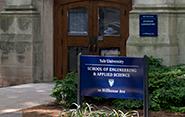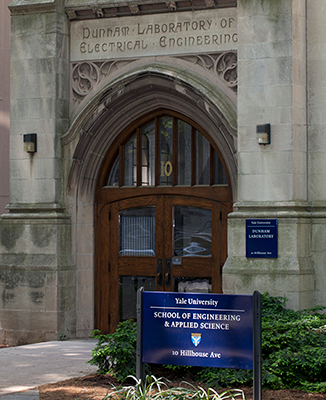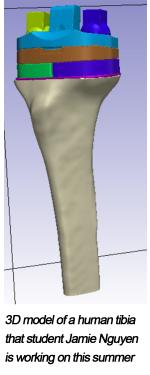Many Summer Plans Fell Through, but Internship Program Offers Support

Like many of his classmates this year, Jamie Pham suddenly found that his summer plans were in disarray.
 “It was hard for me to get an internship for summer 2020 due to COVID-19,” said Pham, who will be a senior in the fall. “Because my major of Mechanical Engineering is extremely hands-on, there's almost no virtual internships anywhere. I also cannot go back to my home country of Vietnam, because we have imposed a ban on international flights to contain the virus.”
“It was hard for me to get an internship for summer 2020 due to COVID-19,” said Pham, who will be a senior in the fall. “Because my major of Mechanical Engineering is extremely hands-on, there's almost no virtual internships anywhere. I also cannot go back to my home country of Vietnam, because we have imposed a ban on international flights to contain the virus.”
The situation led him to the SEAS 2020 Summer Design/Research Scholars and to the School of Medicine's Department of Orthopaedics. There, he’s working with Dr. Daniel Wiznia, assistant professor of orthopedics and rehabilitation and mechanical engineering and materials science, and Dr. Steven Tommasini, research scientist at the School of Medicine. As part of the internship, he’s now continuing work on total knee replacements that he began in a special projects research course for mechanical engineering majors. Before the summer’s up, he hopes to complete a scientific paper on the project.
The summer program was designed specifically around the unique circumstances that students are facing this year. SEAS Deputy Dean Vincent Wilczynski said the idea of the internship program came about as a way to mitigate the loss of internship, research, and academic opportunities that many students are experiencing this summer.
“Thanks to the support of Yale Engineering faculty, staff, and supporters, the School of Engineering & Applied Science, in partnership with the Office of Career Strategies was able to quickly find opportunities for students to pursue research and design projects when previously scheduled internships and fellowships were canceled due to the pandemic,” he said.

The program has enrolled more than 60 students, working remotely in the labs of numerous faculty members. The many projects that students will be working on over the summer as part of the program include evaluating airflow and particulate removal on CT trains, designing exhibits for the Smithsonian Institute for visitors with disabilities, and assisting with a Medical Software Design textbook.
In the lab of Corey O’Hern, one of the co-organizers of the program, students have taken on a project to help identify the structure of several of the proteins associated with the COVID-19 virus, study the fluid-driven erosion of granular beds, and in collaboration with Jan Schroers, professor of mechanical engineering & materials science, explore the crystal structure of high entropy alloys.
O’Hern, professor of mechanical engineering & materials science, said he usually has one or two undergraduate students working in his lab over the summer; this year he has eight. He noted that the summer program allows rising sophomores and rising juniors to be paid for their research through Yale’s Domestic Summer Award (DSA) funding, as well as obtain course credit toward the Mechanical Engineering major. Most upperclassmen, however, have already applied for a DSA over previous summers (only one DSA is available per student).
“And because a lot of them lost their internships, they need summer funding to pay their expenses during the academic year or provide funding for their summer housing and food,” O’Hern said. So, he used funds from Yale’s National Science Foundation-funded REU (Research Experiences for Undergraduates) Site Program to support the additional Yale students in his lab.
In the Orthopaedics Biomechanics Laboratory run by Tommasini, and the High-Performance Super Computing Core run by Wiznia, Pham will be joined by three others in the program - another undergraduate and two seniors who graduated in May. In addition to Pham’s project, the students will focus on innovating ways to prevent hip fractures, and how to treat geriatric patients with finger fractures. Wiznia said the program is a great way to help students stay busy during the summer, learn and get course credit. He and Tommasini were especially eager to expand some of the projects they’ve been working on after learning that some of their students’ internships were cancelled and others had their employment plans delayed.
“We felt really bad for those students, and this a really good opportunity to do some medical device design research,” he said. “It’s a display of the engineering faculty really stepping up for these students and making sure that they can make good use of their time and learn. We want them to succeed down the road.”

